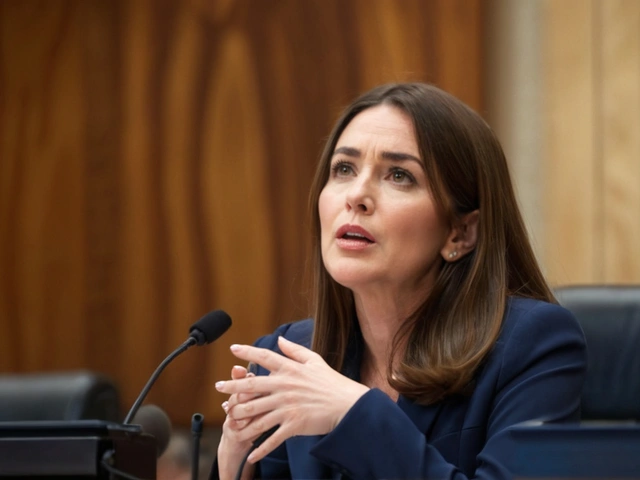
Understanding Daylight Saving Time (DST) in the US
Every year, millions of Americans experience a biannual ritual of adjusting their clocks. This phenomenon, known as Daylight Saving Time (DST), affects many aspects of daily life, disrupting routines, influencing sleep patterns, and often sparking heated debates on its relevance. DST in the United States is not just an antiquated practice but a legally mandated adjustment stemming from laws like the Energy Policy Act of 2005, which sought to extend daylight hours to save energy. The act established that DST would commence on the second Sunday of March and conclude on the first Sunday of November. This means on these days, clocks either spring forward by an hour in March or fall back in November, seemingly gifting people either more daylight or more morning sleep.
The Historical Pathway to Daylight Saving Time
The concept of Daylight Saving Time dates back centuries but became most prominent during wartime for conservation reasons. Initially implemented during World War I and brought back during World War II, these changes were meant to reduce the need for artificial lighting and thereby conserve fuel. In more recent history, the Energy Policy Act of 2005 altered the time frame of DST. As a result, Americans now 'spring forward' in March, reducing the amount of morning light temporarily while extending daylight in the evening, and 'fall back' in November to regain morning sunlight. These changes were intended to help reduce the consumption of oil by coordinating daylight hours with human activity.
Impacts on Health and Routine
While the intent of DST was to promote energy savings, its effects on human health and daily routines have become increasingly documented and scrutinized. Shifting the clock disrupts the body's internal clock, which is synchronized to the natural light-dark cycle. The misalignment affects circadian rhythms - the natural, internal processes that regulate the sleep-wake cycle and repeat roughly every 24 hours. Experts advise maintaining a regular sleep schedule to preserve these rhythms, yet the one-hour shift can take days to recover. This disruption can lead to increased incidents of sleep disorders, stress, and even heart-related incidents in sensitive populations. Moreover, the production of melatonin, the hormone associated with sleep onset, is delayed by extended evening light, making it difficult to fall asleep at conventional times when the clocks shift forward.
The Adjustment Period and Sleep Cycles
Adapting to the clock change involves more than just a one-hour adjustment. It's a shift that can cascade into broader lifestyle changes, impacting children, who thrive on consistency, and causing potential productivity dips in adults. The human body's sleep is structured around cycles, typically lasting about 90 minutes each. Ideally, as sleep experts suggest, completing five full cycles is optimal for rest and rejuvenation. By changing the clocks, particularly when 'falling back' in November, there's an opportunity to adjust bedtime routines and leverage the extra hour for better health. However, given the modern era's semblance of non-stop availability, many neglect this opportunity, leading to sleep deficits.
The Uniform Time Act Exemptions
Despite its wide-reaching implementation, not all regions in the United States participate in Daylight Saving Time. The Uniform Time Act of 1966 provides for states to opt-out of DST. As a result, states like Hawaii and most of Arizona, except the Navajo Nation, do not observe DST, maintaining a consistent local time year-round. These areas have reasoned that their climates, geographical positioning, or unique scheduling needs do not necessitate DST's artificial manipulation. This divergence emphasizes the ongoing conversations about whether the practice of DST still aligns with contemporary societal needs, pointing to a growing desire for time consistency.
The Arguments For and Against Daylight Saving Time
Daylight Saving Time has its proponents and detractors. Advocates argue that more daylight in the evening benefits outdoor leisure pursuits, reduces energy usage by decreasing reliance on artificial lighting, and even lowers crime rates by providing more daylight. However, critics counter these claims, citing that the energy savings are minimal and often counterbalanced by increased use of heating and cooling. The adverse effects on health, manifesting in sleep disorders, workplace accidents, and even increased risk of heart attacks in the days following the shift, compound the argument against DST. Additionally, there's a growing clamor for uniformity in time practices to avoid the semi-annual confusion and disruption.
Looking Ahead: The Future of DST
The future of Daylight Saving Time in the United States remains uncertain. Legislative efforts to abolish DST or make it permanent have been sporadically entertained at both state and federal levels. Proposals suggest that remaining on one time, whether standard time or daylight saving time, could streamline human activity with natural environmental patterns. As 2025 approaches, with DST set to start again on March 9 and end on November 2, the ongoing deliberation suggests that changes in public policy might be on the horizon. The dialogue champions a growing recognition that while daylight saving once addressed wartime energy needs, its relevance in today's digital and climate-conscious world requires re-evaluation.
Whether for energy savings, cultural adherence, or health considerations, Daylight Saving Time continues to provoke debate. As society advances, the balance between traditional practices and contemporary needs will be crucial in determining the future of DST and its practice in the United States.





